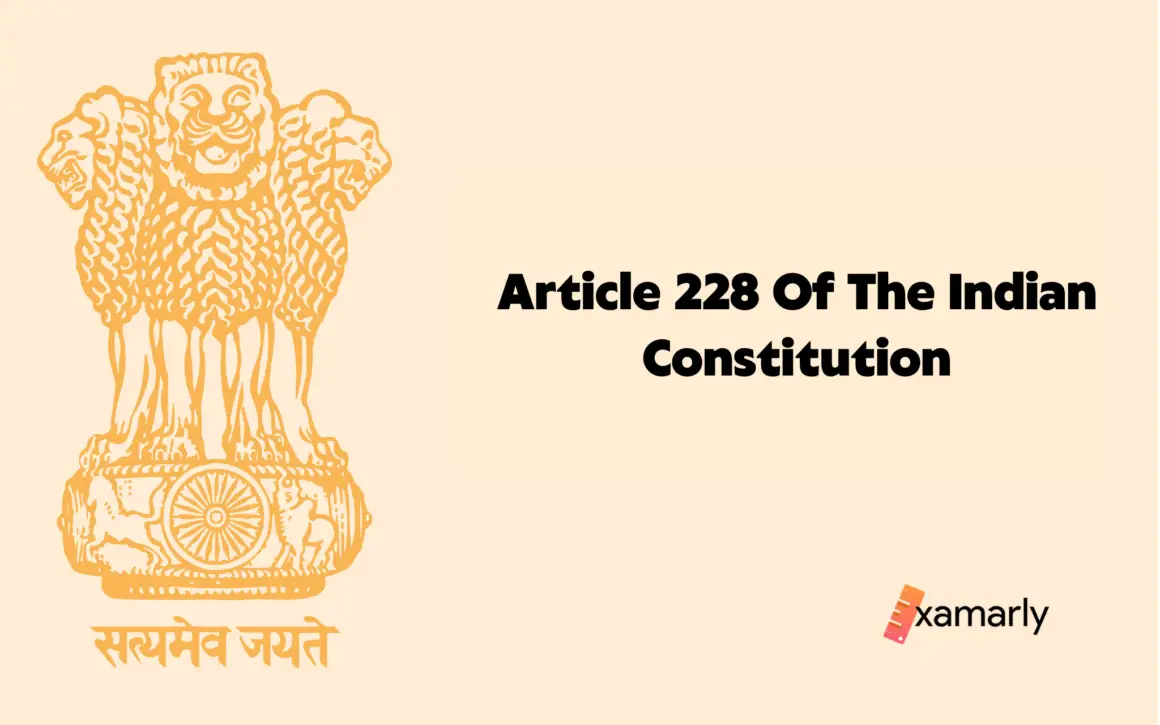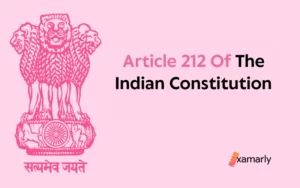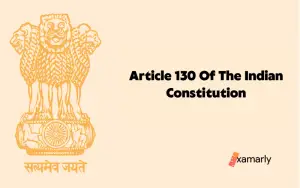Article 228 of the Indian Constitution deals with the transfer of cases from a subordinate court to the High Court in some circumstances.
It also talks about the protocols that have to be taken into consideration while transferring or disposing of the case.
Let us dig deep into Article 228 of the Indian Constitution to have the best understanding of the all concepts that are encompassed in the aforementioned Article. ‘
Article 228 Of The Indian Constitution – In Detail
We will break down each and every clause present in Article 228 of the Indian Constitution to get an in-depth understanding.
Clause 1 – As it is & Explained
228. Transfer of certain cases to High Court If the High Court is satisified that a case pending in a court subordinate to it involves a substantial question of law as to the interpretation of this Constitution the determination of which is necessary for the disposal of the case, it shall withdraw the case and may
(a) either dispose of the case itself, or
(b) determine the said question of law and return the case to the court from which the case has been so withdrawn together with a copy of its judgment on such question, and the said court shall on receipt thereof proceed to dispose of the case in confirmity with such judgment
The only clause of Article 228 of the Indian Constitution says that High Court has jurisdiction in certain instances In cases when the High Court believes that the resolution of an important legal issue hinges on the proper interpretation of the Constitution, it has the authority to transfer those cases from lower courts to itself.
(a) dismiss the case without further action on its own
The court that received the case after it was withdrawn would then (b) determine the said question of law and return the case to the court from which the case was so withdrawn together with a copy of its judgement on such question, and the said court shall on receipt thereof proceed.
Related – Article 227 Of The Indian Constitution
Summing Up
We can conclude that Article 228 of the Constitution of India deals with the power of a High Court to transfer cases and appeals pending before a court subordinate to it.
It states that a High Court may, at any stage, transfer any case or appeal pending before any court subordinate to it, to any other such court.
Here are some frequently asked questions about Article 228 of the Indian Constitution:
What is the purpose of Article 228?
Article 228 empowers a High Court to transfer cases and appeals pending before a court subordinate to it, to any other such court. This provision allows for the proper administration of justice and helps to ensure that cases are heard by the most appropriate court.
Is there any time limit for transferring a case under Article 228?
Under Article 228 of the Constitution, there is no time limit on when a case can be moved. A high court or the Supreme Court may transfer a case at any stage, depending on the circumstances of the case.






